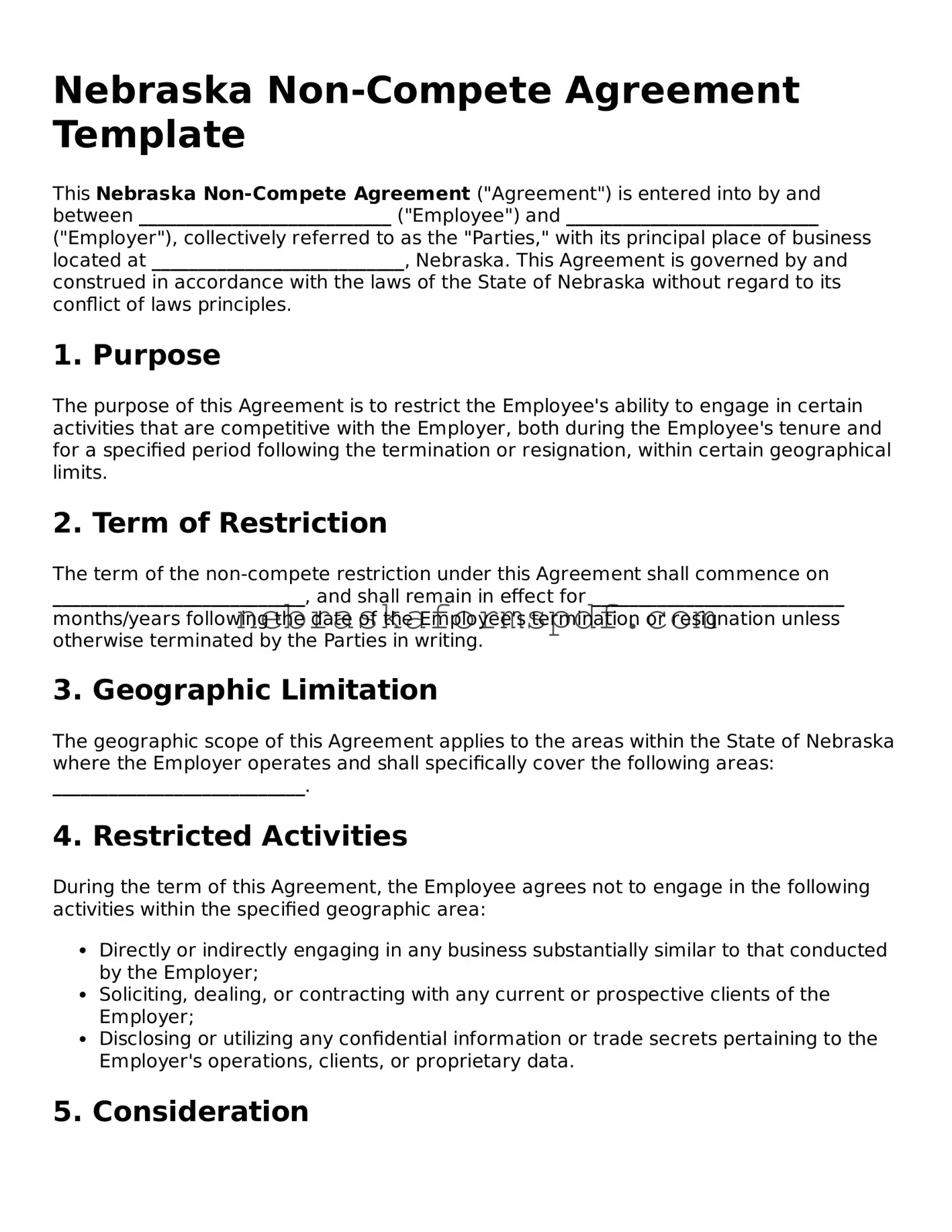Nebraska Non-Compete Agreement Template
This Nebraska Non-Compete Agreement ("Agreement") is entered into by and between ___________________________ ("Employee") and ___________________________ ("Employer"), collectively referred to as the "Parties," with its principal place of business located at ___________________________, Nebraska. This Agreement is governed by and construed in accordance with the laws of the State of Nebraska without regard to its conflict of laws principles.
1. Purpose
The purpose of this Agreement is to restrict the Employee's ability to engage in certain activities that are competitive with the Employer, both during the Employee's tenure and for a specified period following the termination or resignation, within certain geographical limits.
2. Term of Restriction
The term of the non-compete restriction under this Agreement shall commence on ___________________________, and shall remain in effect for ___________________________ months/years following the date of the Employee's termination or resignation unless otherwise terminated by the Parties in writing.
3. Geographic Limitation
The geographic scope of this Agreement applies to the areas within the State of Nebraska where the Employer operates and shall specifically cover the following areas: ___________________________.
4. Restricted Activities
During the term of this Agreement, the Employee agrees not to engage in the following activities within the specified geographic area:
- Directly or indirectly engaging in any business substantially similar to that conducted by the Employer;
- Soliciting, dealing, or contracting with any current or prospective clients of the Employer;
- Disclosing or utilizing any confidential information or trade secrets pertaining to the Employer's operations, clients, or proprietary data.
5. Consideration
In consideration for the Employee's agreement to these restrictions, the Employer agrees to provide ___________________________.
6. Severability
If any provision of this Agreement is found to be invalid or unenforceable by a court of competent jurisdiction, the invalidity or unenforceability of such provision shall not affect the other provisions of this Agreement, which shall remain in full force and effect.
7. Entire Agreement
This Agreement constitutes the entire agreement between the Parties regarding the subject matter hereof and supersedes all prior agreements, understandings, negotiations, and discussions, whether oral or written, of the Parties. No modification of this Agreement shall be effective unless in writing and signed by both Parties.
8. Binding Effect
This Agreement shall be binding upon and inure to the benefit of the Parties hereto and their respective heirs, legal representatives, successors, and assigns.
9. Acknowledgment
By signing below, the Employee acknowledges that they have read, understand, and agree to be bound by the terms of this Agreement. The Employee further acknowledges that they have been provided an opportunity to consult with legal counsel of their choice before signing this Agreement.
Date: ___________________________
Employee Signature: ___________________________
Employee Name (Print): ___________________________
Employer Signature: ___________________________
Employer Name (Print): ___________________________

